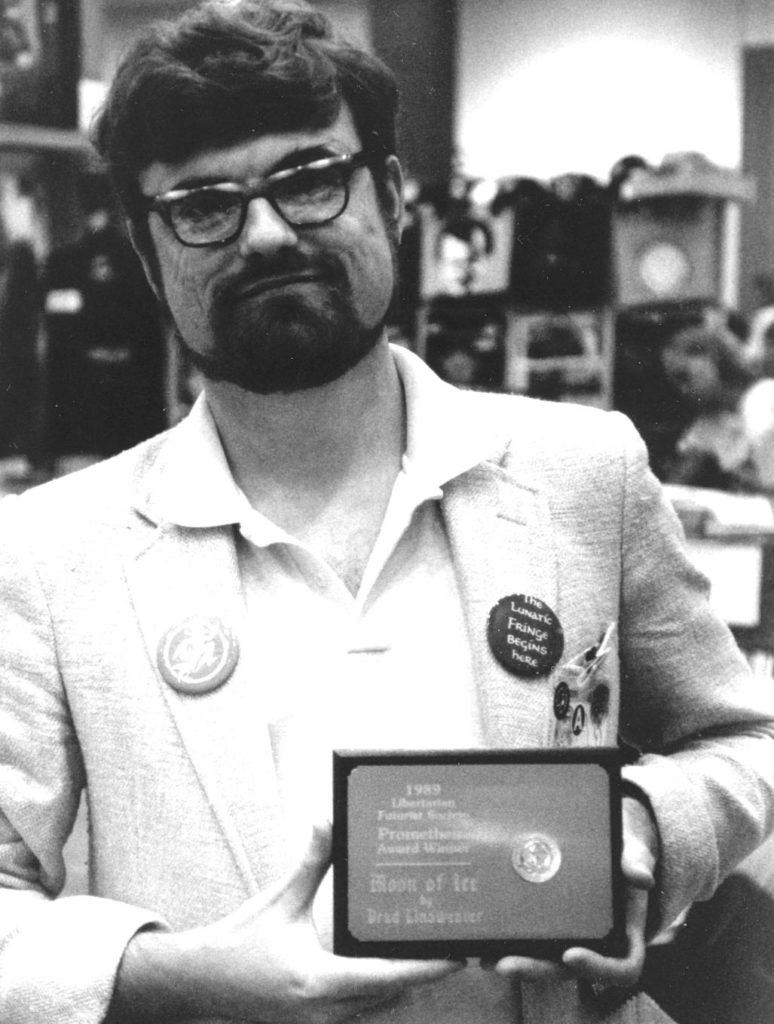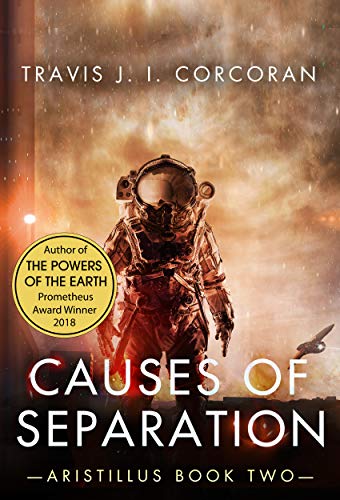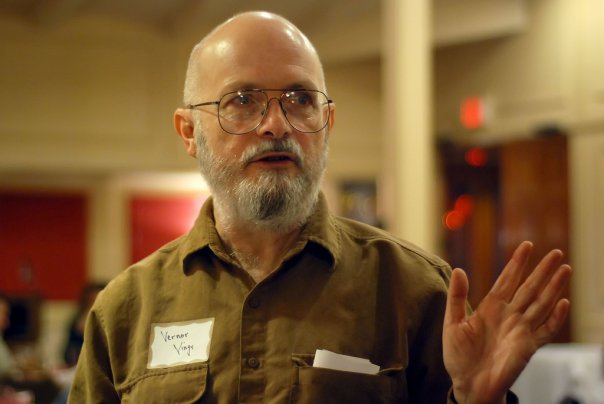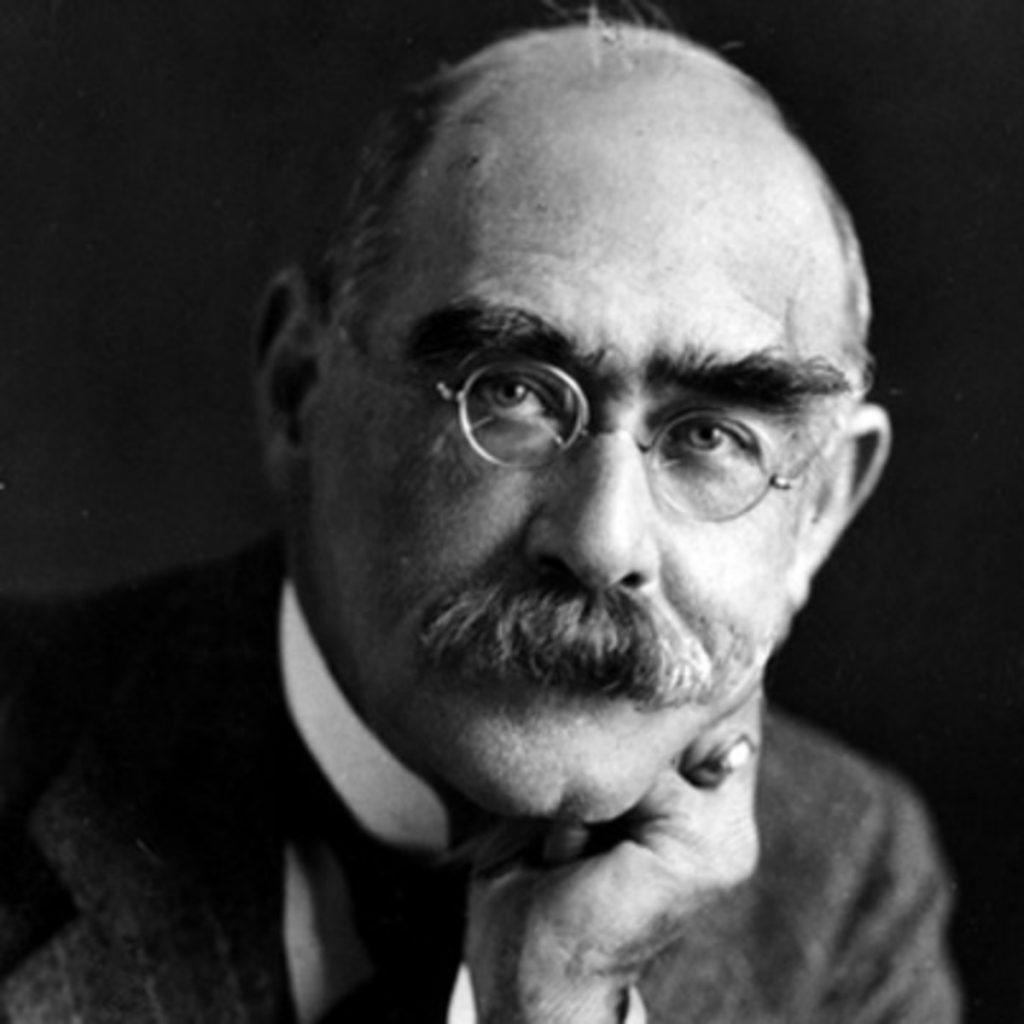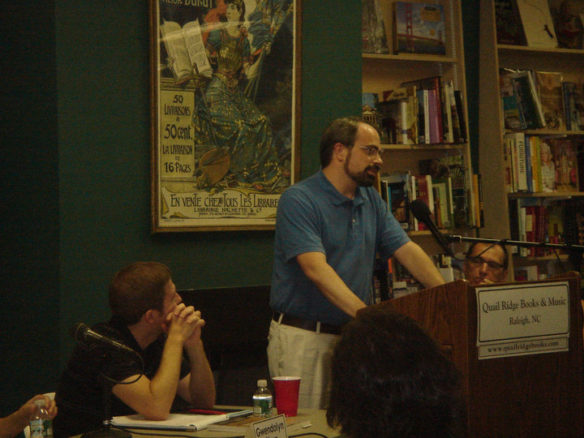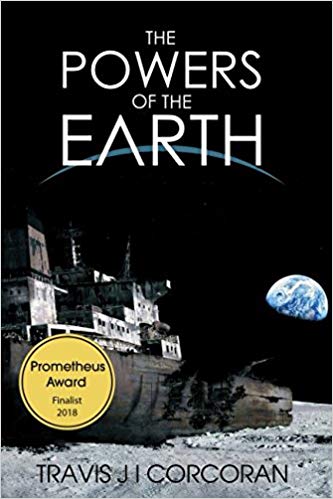(1) TIPTREE AWARD CONTROVERSY. While I can’t say I located the ultimate roots of the discussion, I found Carrie Cuinn’s thread, which starts here.
There are more comments in Natalie Luhrs’ thread, starting here.
Today Sweden’s John-Henri Holmberg countered challenges raised about continuing the James Tiptree Award under its existing name in his review of the history of the award and its namesake on Facebook. He asks in conclusion:
…What has changed in the last few months? As far as I know, nothing. The award given not even in her own name, but in the name of her pseudonym, celebrates work of imaginative fiction exploring the territory she made her own over her twenty-years long writing career. She explored it more deeply, searchingly, critically and imaginatively than anyone before her had ever come close to doing, and her work remains startlingly fresh, moving, and thoughtful. We owe it to her to celebrate her heritage, not to obliterate it. Her death, as that of her husband, was a tragedy, but not by any reasonable standard an erasure of her life or her literary heritage.
(2) CARRYING THE BANNER. Travis Corcoran’s Prometheus Award acceptance speech has been posted on the Libertarian Futurist Society blog:
Here is the acceptance speech by Travis Corcoran for 2019 Prometheus Award for Best Novel for Causes of Separation. (Corcoran could not attend the Dublin Worldcon but wrote this acceptance speech to be read there at the ceremony.)
…Chapman’s essay and Pournelle’s and Conquest’s laws are three observations of a single underlying phenomena: the collectivists always worm their way in and take over. We know THAT this happens, but WHY does it happen? How can we model it and understand it?
(3) WHAT, IT’S NOT CHEESE? Space.com reports “China’s Lunar Rover Has Found Something Weird on the Far Side of the Moon”.
China’s Chang’e-4 lunar rover has discovered an unusually colored, ‘gel-like’ substance during its exploration activities on the far side of the moon.
The mission’s rover, Yutu-2, stumbled on that surprise during lunar day 8. The discovery prompted scientists on the mission to postpone other driving plans for the rover, and instead focus its instruments on trying to figure out what the strange material is.
…So far, mission scientists haven’t offered any indication as to the nature of the colored substance and have said only that it is “gel-like” and has an “unusual color.” One possible explanation, outside researchers suggested, is that the substance is melt glass created from meteorites striking the surface of the moon.
(4) EL-MOHTAR REVIEW. NPR’s Amal El-Mohtar says “‘Palestine + 100’ Explores Contested Territory, Past And Future”
A few years ago I reviewed Iraq + 100, a project which invited its contributors to write stories set 100 years in Iraq’s future. It was conceived as an imaginative springboard for Iraqi writers to potentially launch themselves beyond the enduring trauma of waves of invasion and devastation — but because science fiction stories set in the future are always in some way about our present, the collection became a multi-voiced testament to the fact that you can’t project a future without first reckoning with the past.
Comma Press has followed that collection up with Palestine + 100, an anthology edited by Basma Ghalayini in which twelve Palestinian authors write stories set 100 years after the Nakba — Arabic for “catastrophe” — during which, as Ghalayini writes in her moving, thoughtful introduction, “Israel declared itself a new-born state on the rubble of Palestinian lives.” Thus where Iraq + 100 looked towards the year 2103, the stories in Palestine + 100 look towards 2048, and the bulk of the work isn’t about extrapolating a future so much as recognizing, fighting, and establishing narratives about the past. The choice of subtitle — “stories from a century after the Nakba” — exemplifies this, drawing attention to the fact that for Palestinians (and many Israelis), May 15, 1948 is not a date to celebrate, but to grieve.
In Palestine + 100, memory and imagination are contested territories. Samir El-Youssef’s “The Association,” translated by Raph Cormack, kicks off with the murder of a historian; the narrator observes that “Since the 2028 Agreement, the people of the country — all the different sects and religions, Muslim, Christian and Jewish — had decided that forgetting was the best way to live in peace.” In Saleem Haddad’s “Song of the Birds,” a young girl lives in a beautiful simulation haunted by the vicious, broken reality it obscures. In Ahmed Masoud’s “Application 39,” two young men imagine a Palestinian bid for the Olympics as a joke — and find themselves in the tormented midst of trying to make that a reality, with all the consequences it entails. In Tasnim Abutabikh’s “Vengeance” the plot is evenly divided between one man’s elaborate pursuit of revenge against a neighbor he thinks has wronged him — and that neighbor’s heartbroken revelation that the man had the past all wrong. In almost all these stories there is a doubled, troubled vision, that never resolves so much as it fractures further.
(5) MICHAELS OBIT. Melisa Michaels (1946-2019) died August 30 of complications amid efforts to treat her lung cancer. (Condolences to filer Xtifr, her nephew.)
Michaels was known for her series about Skyrider, a woman space combat pilot. She also wrote urban fantasies including “Sister to the Rain” and “Cold Iron.” Her novel Skirmish was nominated for a Locus Award for Best First Novel in 1986. SFWA presented her with a Service Award in 2008.
(6) TODAY’S BIRTHDAYS.
[Compiled by Cat Eldridge.]
- Born August 31, 1914 — Richard Basehart. He’s best remembered as Admiral Harriman Nelson in Voyage to the Bottom of the Sea. He also portrayed Wilton Knight in the later Knight Rider series. And he appeared in “Probe 7, Over and Out”, an episode of The Twilight Zone. (Died 1984)
- Born August 31, 1933 — Robert Adams. He’s best remembered for the Horseclans series which became his overall best-known works though he wrote other works. While he never completed the series, he wrote 18 novels in the Horseclans series before his death. (Died 1990.)
- Born August 31, 1949 — Richard Gere, 70. Lancelot in First Knight starring Sean Connery as King Arthur. And was Joe Klein in The Mothman Prophecies. That’s it. First Knight for me is more than enough to get Birthday Honours!
- Born August 31, 1958 — Julie Brown, 61. Starred with Geena Davis in the cult SF comedy, Earth Girls Are Easy. She’s actually been in genre films such as The Incredible Shrinking Woman, Bloody Birthday (a slasher film), Timebomb and Wakko’s Wish. She’s had one-offs in TV’s Quantum Leap and The Addams Family. She’s voiced a lot of animated characters included a memorable run doing the ever so sexy Minerva Mink on The Animaniacs. She reprised that role on Pinky and The Brain under the odd character name of Danette Spoonabello Minerva Mink.
- Born August 31, 1969 — Jonathan LaPaglia, 50. The lead in Seven Days which I’ve noted before is one of my favourite SF series. Other than playing Prince Seth of Delphi in a really bad film called Gryphon which aired on the Sci-fi channel, that’s his entire genre history.
- Born August 31, 1971 — Chris Tucker, 48. The way over the top Ruby Rhod in Luc Besson’s The Fifth Element, a film I really, really like. His only other genre credit is as a MC in the Hall in The Meteor Man.
- Born August 31, 1982 — G. Willow Wilson, 37. A true genius. There’s her amazing work on the Hugo Award winning Ms. Marvel series starring Kamala Khan which I recommend strongly, and that’s not to say that her superb Air series shouldn’t be on your reading list. Oh, and the Cairo graphic novel with its duplicitous djinn is quite the read. The only thing I’ve by her that I’ve not quite liked is her World Fantasy Award winning Alif the Unseen novel. I’ve not yet read her Wonder Women story but will soon.
- Born August 31, 1992 — Holly Earl, 27. She’s been in a number of British genre shows such as playing Kela in Beowulf: Return to the Shieldlands, Agnes in Humans, and yes, Doctor Who in the “The Doctor, the Widow and the Wardrobe”, an Eleventh Doctor story in she was Lily Arwell.
(7) COMICS SECTION.
- Bizarro lives up to its name with this idea about collaborative effort.
(8) ONE TO BEAM UP. Camestros Felapton’s incredible “tweetfilk” of Star Trek and Bowie, featuring science officer Ziggy!! Thread starts here.
(9) PLEASE DON’T JOKE ABOUT THIS. Variety: “‘Joker’ Reviews: What the Critics Are Saying”.
Critics are raving for Warner Bros. latest comic book installment.
Todd Phillip’s “Joker” opened Saturday at the Venice Film Festival to effervescent reviews, with many critics highlighting an Oscar-worthy appearance from star Joaquin Phoenix. Variety‘s own Owen Gleiberman praised Phoenix’s performance, emphasizing his physical acting and emotional control:
“He appears to have lost weight for the role, so that his ribs and shoulder blades protrude, and the leanness burns his face down to its expressive essence: black eyebrows, sallow cheeks sunk in gloom, a mouth so rubbery it seems to be snarking at the very notion of expression, all set off by a greasy mop of hair,” he wrote. “Phoenix is playing a geek with an unhinged mind, yet he’s so controlled that he’s mesmerizing. He stays true to the desperate logic of Arthur’s unhappiness.”
(10) VERY LEAKY ESTABLISHMENT. NPR asks “Have You Seen Any Nazi Uranium? These Researchers Want To Know”. (The photo makes it look like a Borg spaceship.)
Timothy Koeth’s office is crammed with radioactive relics – old watches with glowing radium dials, pieces of melted glass from beneath the test of the world’s first nuclear weapon.
But there is one artifact that stands apart from the rest: a dense, charcoal-black cube, two-inches on a side. The cube is made of pure uranium metal. It was forged more than 70 years ago by the Nazis, and it tells the little-known story of Germany’s nuclear efforts during World War II.
“From a historical perspective this cube weighs a lot more than five pounds,” Koeth, a physicist at the University of Maryland, says as he holds it in his hand.
…At the time of Hitler’s rise, Germany was actually at the cutting edge of nuclear technology. “Nuclear fission was discovered in Berlin in late 1938,” says Alex Wellerstein is a historian of science at the Stevens Institute of Technology in Hoboken, New Jersey. “They were the first team of people who figured out how to split the atom, and figured out that when you split the atom, a lot of energy was going to be released.”
That basic idea of splitting atoms to release energy is what’s at the heart of all of today’s nuclear power plants and all the world’s nuclear weapons.
But back during World War II, it was all theoretical. To find out how it could work, the Germans devised strange looking experiment. Scientists strung together 664 cubes of uranium with aircraft cables and suspended them. The result looked “kind of like a very strange modernist chandelier of cubes,” Wellerstein says.
The chandelier was dipped into a cylindrical tank of heavy water, which contains special isotopes of hydrogen that make it more conducive to nuclear reactions.
The setup was known as the B-VIII reactor. The Germans were experimenting with it inside a cave in the southern town of Haigerloch. They were still trying to get it to work when the allied invasion began. As Allied forces approached, the German scientists disassembled the reactor and buried the cubes in a field.
The first wave of Allied troops to arrive included a task force known as Alsos, which was seeking to seize as much of the Nazi program as they could.
The Nazi scientists quickly disclosed the location of the buried cubes to the Allies, Wellerstein says. The Alsos team boxed up the cubes, to send them back to America, but what happened after that is not entirely clear.
(12) UK BIOBANK. “Geneticists To Cooperate, Not Compete” – NPR has the story.
There’s an astonishing outpouring of new information linking genes and health, thanks to the efforts of humble Englishmen and women such as Chritopeher Fletcher. The 70-year-old man recently drove 90 miles from his home in Nottingham to a radiology clinic outside the city of Manchester.
He is one of half a million Brits who have donated time, blood and access to their medical records to a remarkable resource called UK Biobank. The biobank, in turn, has become a resource for more than a thousand scientists around the world who are interested in delving into the link between genes, behaviors and health.
Popularity of the resource is snowballing. Just this week, a major study using the data explored the genetics of same-sex sexual behavior. And as researchers discover the biobank’s value, there’s a strong incentive to add to the database to make it even richer.
…What makes UK Biobank valuable is not only the half-million volunteers, whose health will be followed for decades, but also its community-spirited scientific strategy. Chief scientist Dr. Cathie Sudlow says the organizers, in a break from their usual ways, aren’t out to answer their own scientific questions, but to serve their colleagues.
“I’ll freely admit that when I first started out in the biobank I couldn’t really believe that we were all going to work really hard to make data available for other people,” she says. “And that is because I came from this traditional, kind of slightly paranoid, somewhat territorial, academic background.”
The scramble for research funds creates competitive incentives in much of academic science today. This biobank is different.
(13) JUST A FEW MORE HOURS. Readers of Camestros’ Felapton’s blog have entertained each other today with some last-minute speculation about the winners: “Just for fun, some Dragon Award predictions”.
Best Science Fiction Novel: A Star-Wheeled Sky by Brad Torgersen is a plausible winner. If it does then we can assume other works in the Brad Puppies list got lots of votes. I think Tiamat’s Wrath is a likely winner given the popularity of The Expanse TV series and the Dragon Con audience. However, Becky Chambers has a wide and devoted set of fans and I wouldn’t be astonished if Record of a Spaceborn Few won. If any of the others won, that would be interesting but I don’t know what it would mean.
[Thanks to Cat Eldridge, Mike Kennedy, Chip Hitchcock, Martin Morse Wooster, JJ, John King Tarpinian, Brian Z., and Andrew Porter for some of these stories. Title credit goes to File 770 contributing editor of the day Peer.]

